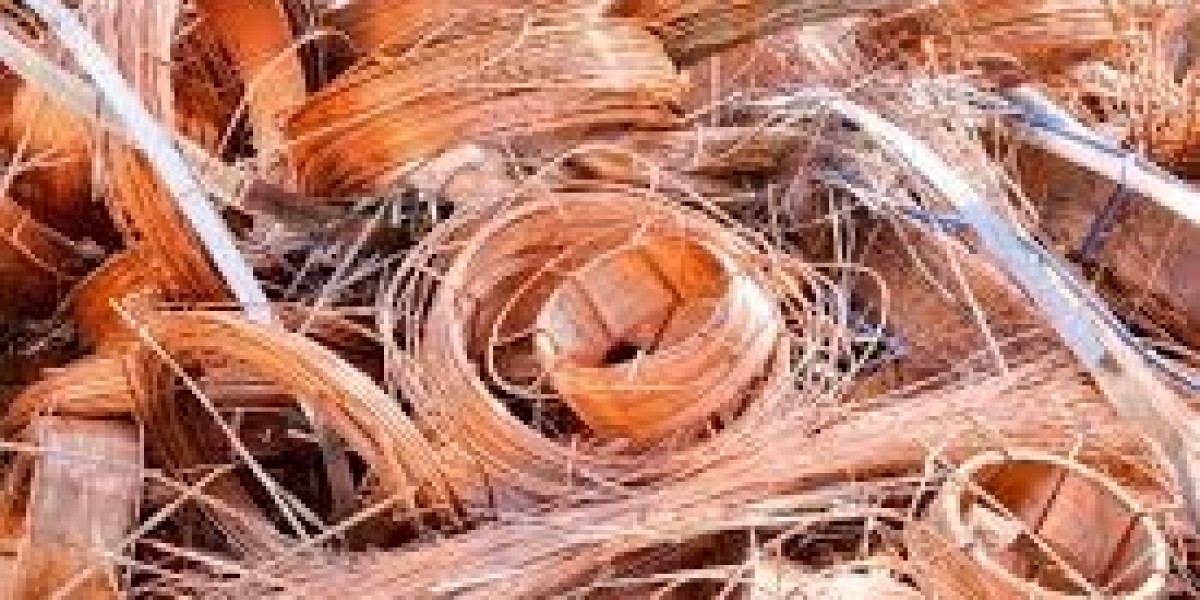Iron is one of the most commonly used metals in the world, thanks to its strength, versatility, and relatively low cost. From construction materials to car parts, iron is integral to many industries. With the rise of sustainable practices and recycling, iron buyers play a crucial role in ensuring that iron scrap is collected, processed, and reused. Whether you have iron scrap from construction, demolition, or old appliances, understanding the role of iron buyers can help you get the best value for your scrap and contribute to the circular economy.
What Do Iron Buyers Do?
Iron buyers are companies or individuals that purchase scrap iron from various sources, including industries, businesses, and private sellers. These buyers help divert iron from landfills by recycling it, which has multiple environmental and economic benefits. Here's what iron buyers typically do:
Collect Iron Scrap: Iron buyers collect scrap iron from various sources, including old machinery, vehicles, appliances, construction sites, and industrial processes.
Sort and Process Scrap: Once the scrap is collected, buyers sort the iron by type and quality. They may remove any contaminants, such as plastic, rubber, or non-ferrous metals, before processing.
Recycling and Resale: After sorting and processing, the iron is sent to recycling centers, where it is melted down and repurposed into new products. Iron can be used to produce steel and other alloys, reducing the need for raw iron ore.
Offer Competitive Prices: Iron buyers assess the value of the scrap based on factors such as the quality, quantity, and type of iron. Clean, high-quality scrap fetches a better price than mixed or contaminated materials.
Provide Environmental Benefits: By buying and recycling iron, buyers contribute to reducing the environmental impact of mining for raw iron ore, which requires significant energy and natural resources.
Types of Iron Scrap Commonly Sold to Buyers
Iron buyers are typically interested in several types of scrap iron, including:
- Cast Iron: Often found in old machinery, engine parts, and household appliances, cast iron is a dense, brittle material commonly recycled.
- Steel: While technically an alloy of iron, steel is widely recycled and often purchased by iron buyers, especially when it's free of contamination.
- Wrought Iron: This type of iron is commonly used in construction and decorative work. Wrought iron scrap is also sought after by buyers.
- Iron from Demolition and Construction: Scrap iron from building materials, such as rebar, pipes, and metal beams, is commonly sold to iron buyers.
How to Sell Your Iron Scrap
If you're looking to sell iron scrap to buyers, here’s how you can do it:
1. Identify Your Scrap
Start by identifying the type of scrap iron you have. The value can vary depending on the quality of the scrap and the type of iron. Clean scrap is always more valuable than mixed scrap.
2. Sort and Clean the Iron
For the best prices, try to clean the iron of any contaminants, such as dirt, paint, or rust. The cleaner your iron scrap, the higher the price you can expect to receive from buyers.
3. Find Reliable Iron Buyers
Look for iron buyers in your area, whether through an online search, local directories, or recommendations from businesses in your industry. Check for customer reviews and ratings to ensure you are dealing with a reputable buyer.
4. Get Quotes
Contact a few buyers to get quotes on the price for your iron scrap. Pricing is typically based on weight and market rates, which fluctuate based on supply and demand. Be sure to get multiple quotes to ensure you’re getting a competitive rate.
5. Delivery or Pickup
Some buyers offer free pickup services, especially if you have a large quantity of iron scrap. For smaller quantities, you may need to transport the scrap to the buyer’s location.
6. Complete the Transaction
Once the scrap is weighed and assessed, the iron buyer will offer you a price based on the current market rate. Payment is typically made in cash, by check, or through bank transfer.
Key Factors That Affect Iron Scrap Pricing
The price you receive for your iron scrap can vary based on several factors, including:
- Market Demand: Iron prices fluctuate based on global supply and demand. Prices may rise or fall depending on the global steel production rates, construction activity, and other industrial uses of iron.
- Type of Iron: Clean, high-quality scrap (such as cast iron and steel) is often more valuable than mixed or contaminated scrap.
- Quantity: Larger quantities of scrap iron often result in higher overall payouts, as buyers may offer bulk pricing or free collection services.
- Local Market Conditions: Prices can vary depending on where you live, as transportation costs and local demand for scrap metal influence the rates offered by buyers.
Where to Find Iron Buyers
If you’re looking for iron buyers, here are some common places to start:
Scrap Metal Dealers: Many scrap yards and metal recycling centers accept iron scrap. These dealers often specialize in various types of metals, including iron, and will offer a competitive price for your materials.
Online Platforms: Websites like Craigslist, Gumtree, or Facebook Marketplace often have listings for local scrap buyers who are willing to purchase iron from individuals and businesses.
Recycling Centers: Many cities have recycling centers that buy scrap metal, including iron. Check with your local recycling center to see if they purchase iron scrap and what their rates are.
Industrial Buyers: Some industries, such as construction, demolition, and manufacturing, may have direct buyers who purchase large amounts of scrap iron for recycling purposes.
Waste Management Companies: Some waste management services also offer scrap metal collection and buying, particularly for industrial clients who have large amounts of scrap iron to sell.
Benefits of Selling Iron Scrap to Buyers
- Environmental Impact: By selling your iron scrap, you contribute to reducing waste and promoting recycling. Recycled iron is used to create new products, reducing the need for mining and the environmental damage it causes.
- Economic Gain: Selling scrap iron is a way to earn money from materials that would otherwise be discarded. Whether you’re an individual or a business, scrap iron buyers can offer fair prices for the metal.
- Supporting the Circular Economy: Selling iron scrap helps support the circular economy, where materials are reused and recycled instead of being wasted.
Conclusion
Iron scrap buyers play an important role in the recycling process, ensuring that valuable resources are recovered and reused. Whether you’re cleaning out a construction site, dismantling old appliances, or simply clearing out scrap from your garage, selling iron scrap is a simple and effective way to contribute to sustainability while making money in the process. By choosing the right buyer and understanding the factors that influence pricing, you can ensure a smooth transaction and get the best value for your scrap iron.









